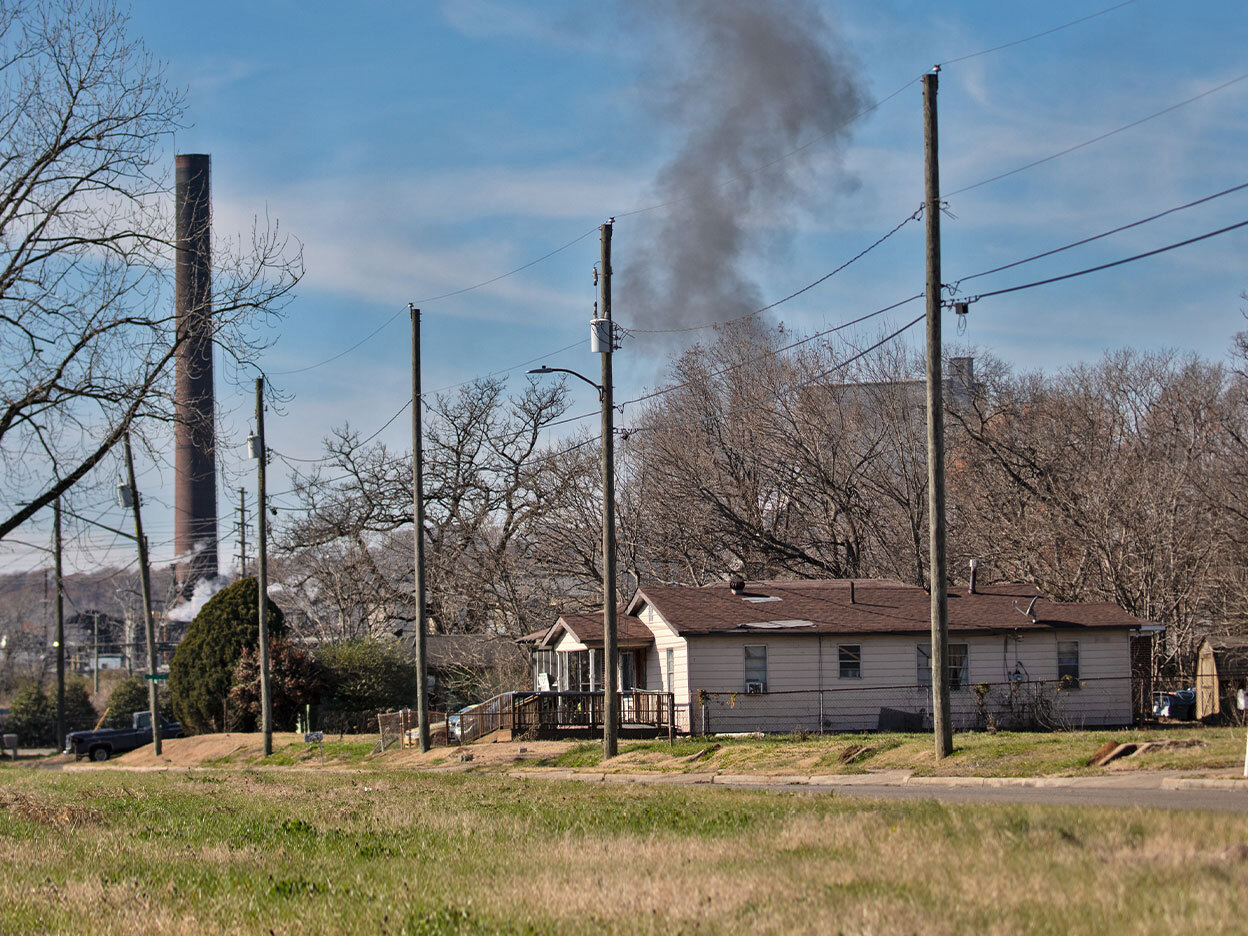Contact: Jilisa Milton, GASP, [email protected]
Birmingham, AL — GASP, alongside several leading environmental justice organizations, has filed an amicus brief in the U.S. Court of Appeals for the District of Columbia Circuit in support of the U.S. The Environmental Protection Agency’s (EPA) strengthened national ambient air quality standard for fine particulate matter, commonly known as soot.
The EPA is responsible for setting national standards that limit the amount of PM2.5 pollution—primarily caused by burning fossil fuels—in the ambient air. In February, the EPA announced a significant step forward by tightening the annual standard for soot pollution from 12.0 micrograms per cubic meter to 9.0 micrograms per cubic meter. However, this critical advancement is now under attack. Several states, including Georgia, Alabama, Tennessee, and South Carolina, along with various polluting industries, have filed lawsuits challenging the new standard. Among their claims is the argument that the EPA’s consideration of environmental justice when setting the standard was unlawful.
In response, GASP, in collaboration with Community Health Aligning Revitalization, Resistance & Sustainability (CHARRS), WE ACT for Environmental Justice, West End Revitalization Association (WERA), South Bronx Unite, and the Southern Environmental Law Center (SELC), has filed a “friend of the court” (amicus) brief.
Our brief argues that the Clean Air Act not only permits but mandates that the EPA take into account the heightened vulnerability of environmental justice communities when setting these critical air quality standards. “These standards are crucial for protecting public health, particularly in regions like ours where
Industrial pollution and environmental injustice have had long-lasting impacts,” said Jilisa Milton, Executive Director of GASP. “Birmingham’s legacy of heavy industry has left our low-income and minority communities disproportionately exposed to harmful air pollution, worsening chronic health conditions such as asthma, heart disease, and respiratory illnesses. The scientific evidence clearly supports the need for these more stringent standards, and the potential benefits are profound. By upholding these regulations, the EPA can significantly reduce health disparities, lower healthcare costs, and advance environmental justice for communities that have been overlooked for far too long. The future of our communities and the health of our children depend on the air we breathe, and we believe the strongest possible soot standards are essential for safeguarding that future.”
“Soot pollution is deadly,” added Mandy Wong-Davis, Community Science Coordinator of GASP. “These invisible particles, many times smaller than the width of a human hair, penetrate deep into the lungs and bloodstream, leading to serious health problems, including asthma, lung disease, heart attacks, preterm births, and even premature death.”
Nearly 63 million people across the United States experience unhealthy spikes in daily soot pollution exposure. Unfortunately, the burden of this pollution is not shared equally. Communities of color and low-wealth communities face the highest exposure levels and are at significantly greater risk of serious health impacts and premature death. These communities are also more likely to suffer adverse health effects at lower pollution levels compared to the general population. “The EPA’s decision to adopt a more protective standard is not only lawful, but it is necessary to address the disproportionate harm faced by communities of color and low-income populations,” continued Milton. “We will continue to advocate for even stronger national standards to ensure that every community has clean, safe air to breathe.” GASP and our partners remain committed to fighting for environmental justice and will persist in our efforts to push the EPA to adopt even stronger standards that better protect vulnerable communities, reduce health disparities, and save lives.
###
GASP is a nonprofit organization that aims to advance healthy air and environmental justice in the Greater Birmingham area through education, advocacy, and collaboration. We strive to reduce exposure to air pollution, educate the public on the health risks associated with poor air quality, and encourage community leaders to serve as role models by advocating for clean air and clean energy. gaspgroup.org


